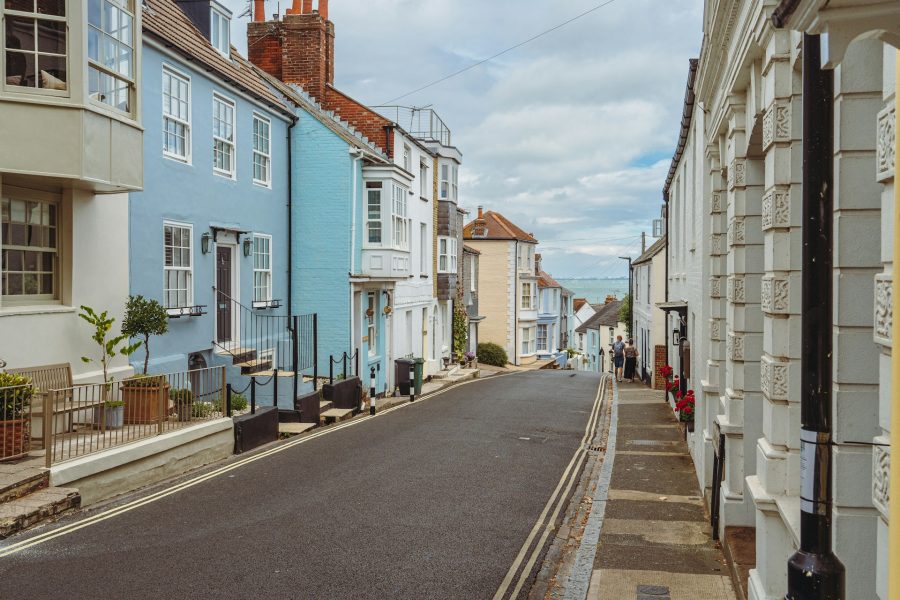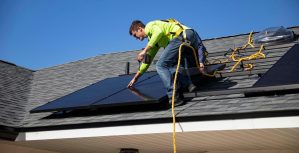Spotlight on Cowes: Your Guide to Living and Buying on the Isle of Wight
Cowes stands as the undisputed jewel of the Isle of Wight, combining world-renowned sailing heritage with vibrant community life and exceptional property opportunities that attract buyers seeking authentic maritime living within easy reach of mainland Britain. This historic port town offers a unique lifestyle proposition that balances island tranquillity with international sailing prestige, creating a property market that appeals to diverse buyers from sailing enthusiasts to families and retirees.
The distinctive character of Cowes stems from its dual role as global sailing capital and charming residential community, where Georgian and Victorian architecture lines waterfront streets whilst modern marinas host prestigious yachting events throughout the year. Understanding the local property market dynamics, community characteristics, and practical considerations of island living proves essential for successful property purchase and relocation. When looking for local estate agents in Cowes, buyers benefit from professionals who understand both the unique appeal of maritime living and the practical considerations that influence property values, rental potential, and long-term investment prospects within this special island community.
The Cowes Property Market Overview:
Property prices in Cowes reflect its prestigious sailing reputation and waterfront location, with typical properties ranging from £200,000 for modest terraced houses to over £1 million for prime waterfront homes with marina views and direct water access. The market demonstrates seasonal patterns aligned with sailing events, particularly during Cowes Week when international attention focuses on the town.
Waterfront properties command significant premiums, with houses offering direct water access, private moorings, or unobstructed views achieving prices 30-50% above equivalent inland properties. Period properties dominating the town centre combine historical character with modern conveniences, whilst new developments on former industrial sites provide contemporary alternatives.
The rental market proves robust throughout the year, with sailing enthusiasts seeking accommodation during racing seasons whilst permanent residents and retirees provide a stable baseline demand. Holiday rental opportunities exist but require careful consideration of planning regulations and community impact.
East Cowes vs West Cowes: Understanding the Divide
The River Medina divides Cowes into two distinct communities connected by a floating bridge, each offering different characteristics and property opportunities. West Cowes hosts the Royal Yacht Squadron and major sailing events, creating prestigious residential areas with period properties and marina access that command premium prices.
East Cowes provides more affordable alternatives whilst maintaining waterfront access and community amenities. Former shipbuilding areas offer development opportunities and modern housing estates, whilst established residential areas provide family homes with good value compared to West Cowes equivalents.
Transport considerations include the floating bridge schedule and capacity, particularly important for East Cowes residents commuting to West Cowes amenities or requiring mainland access through West Cowes ferry terminals.
Sailing Heritage and Maritime Lifestyle:
Cowes Week transforms the town each August, attracting international sailing competitors and spectators who create vibrant atmosphere whilst demonstrating the town’s global sailing significance. This heritage influences property values and community character throughout the year.
Marina facilities including Cowes Yacht Haven and Island Sailing Club provide mooring opportunities that add significant value to waterfront properties whilst creating community focal points for sailing enthusiasts and marine businesses.
The maritime industry supports local employment through boat building, marine services, and sailing instruction, creating stable economic base whilst attracting residents with marine interests and expertise.
Transport Links and Accessibility:
Ferry services from West Cowes to Southampton provide regular passenger connections with journey times of approximately 25 minutes, whilst car ferry services from East Cowes handle vehicle transport to mainland Britain. Red Funnel and Wightlink operate comprehensive schedules though advance booking proves advisable during peak periods.
Island transport includes bus services connecting Cowes to Newport, Ryde, and other Island communities, whilst cycling proves popular due to scenic routes and manageable distances. Car ownership remains important for Island mobility despite public transport availability.
Airport access requires travel via Southampton or Portsmouth, though private aircraft use Bembridge Airport for direct Island access. Helicopter services operate during major sailing events but remain limited for routine transport.
Community Life and Local Amenities:
Cowes maintains strong community spirit through sailing clubs, community groups, and local events that create social opportunities beyond the famous regatta period. The High Street provides essential shopping whilst specialist marine businesses serve sailing communities.
Educational facilities include good primary schools and Cowes Enterprise College, though secondary education options may influence family decisions about Island living. Healthcare provision includes GP practices and community hospital, whilst specialist medical services require mainland travel.
Cultural amenities include Cowes Library, community venues, and galleries showcasing maritime art, whilst numerous pubs and restaurants cater to both residents and visitors. The annual calendar includes sailing events, music festivals, and community celebrations.
Property Types and Investment Opportunities:
Georgian and Victorian terraced houses dominate central Cowes, offering period character with varying degrees of modernisation. Many feature original architectural details including sash windows and decorative features that add character whilst requiring ongoing maintenance.
Modern developments on former industrial sites provide contemporary alternatives with parking, gardens, and energy efficiency that appeal to buyers seeking low-maintenance living. Apartment developments often feature marina views and communal facilities.
Renovation opportunities exist throughout Cowes, with period properties offering potential for modernisation whilst development sites occasionally become available for new construction subject to planning permissions.
Practical Considerations for Island Living:
Shopping logistics require planning due to limited Island retail options and ferry transport costs for mainland purchases. Many residents combine Island shopping with mainland trips, whilst online delivery services increasingly serve Island addresses.
Utility costs may exceed mainland equivalent due to Island infrastructure, though modern properties often feature energy-efficient systems that help control ongoing expenses. Internet connectivity has improved significantly with fibre broadband reaching most areas.
Vehicle maintenance and services are available locally, though specialist requirements may necessitate mainland travel. Ferry costs for vehicles influence travel patterns and should be factored into living cost calculations.
Employment and Economic Opportunities:
Marine industries provide core employment including boat building, marine engineering, and sailing instruction that support families whilst attracting skilled workers with maritime expertise. Tourism and hospitality create seasonal opportunities whilst retail and services support year-round residents.
Remote working opportunities have expanded due to improved internet connectivity, enabling Island residents to maintain mainland careers whilst enjoying Island lifestyle benefits. Self-employment and small business opportunities appeal to those seeking lifestyle changes.
Commuting to mainland employment remains possible though ferry costs and schedules require careful consideration. Some residents maintain Island bases whilst working mainland contracts or seasonal employment.
Quality of Life and Lifestyle Benefits:
The Island pace of life offers stress reduction and community connection that attracts families, retirees, and professionals seeking work-life balance improvements. Sailing opportunities, coastal walks, and outdoor recreation provide lifestyle benefits unavailable in urban environments.
Traffic congestion remains minimal compared to mainland areas, whilst crime rates stay low contributing to family appeal and community safety. The strong community spirit provides social opportunities and mutual support networks.
Environmental quality including air purity and reduced noise pollution enhances daily life quality, whilst the maritime setting provides psychological benefits associated with coastal living.
Investment Potential and Market Outlook:
Cowes property market demonstrates resilience due to unique sailing heritage and limited supply of waterfront properties. International recognition through sailing events maintains property desirability whilst Island planning restrictions limit new development.
Rental investment opportunities exist though require understanding of seasonal patterns and local regulations. Holiday rental potential depends on planning permissions and community considerations.
Long-term prospects remain positive due to enduring sailing heritage, improved transport links, and growing appreciation for Island living benefits. Climate change considerations favour temperate Island locations whilst sailing culture provides economic stability.
Making the Move to Cowes:
Property search requires patience due to limited inventory and specific characteristics of Island properties. Viewing trips should include exploration of community amenities, transport links, and practical services that support daily living.
Legal considerations include understanding Island-specific regulations and ensuring proper surveys that address potential issues including coastal exposure and period property challenges.
Financial planning should account for Island living costs including transport, utilities, and service provision that may differ from mainland expectations whilst budgeting for ferry travel and mainland shopping trips.
Share It on :





